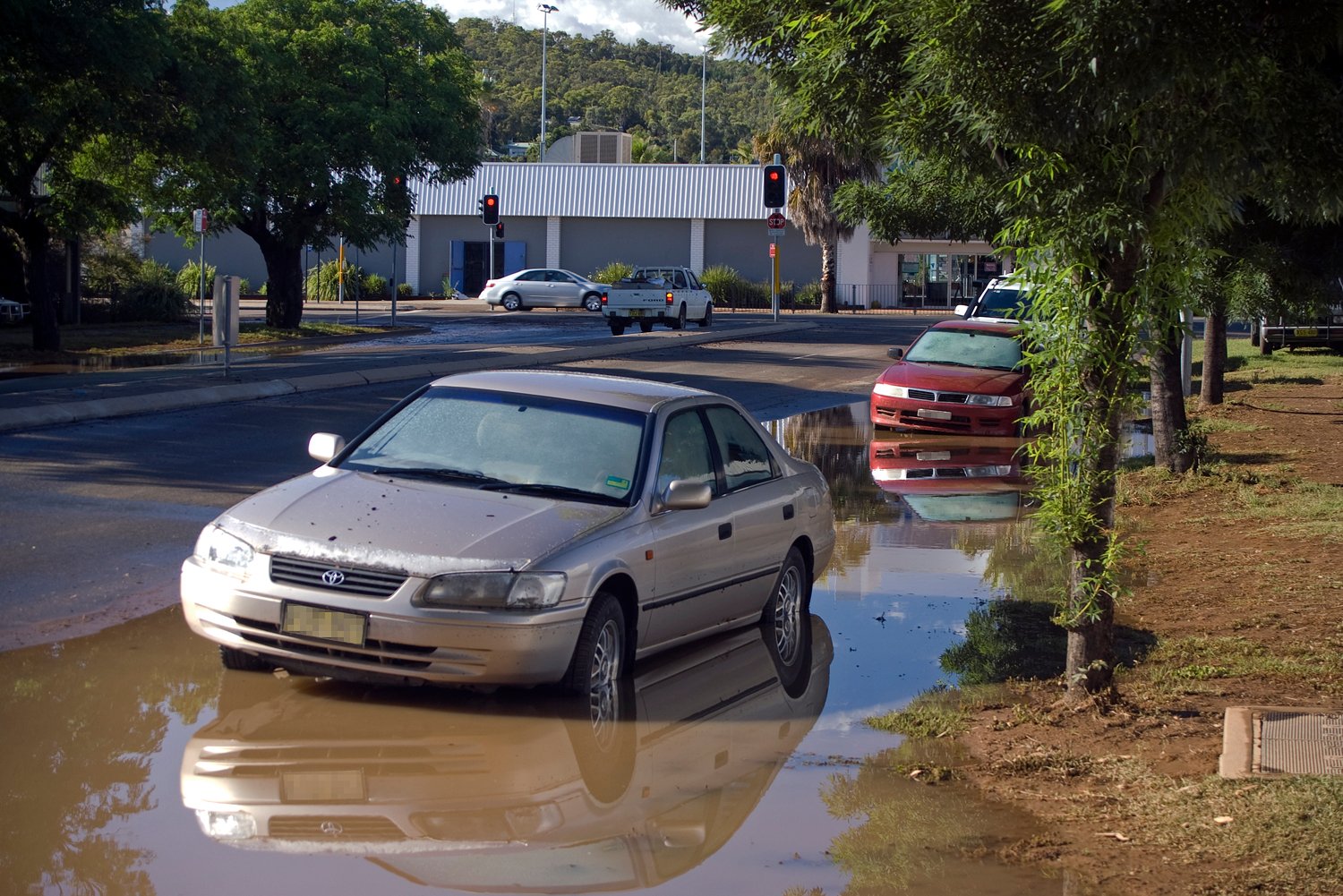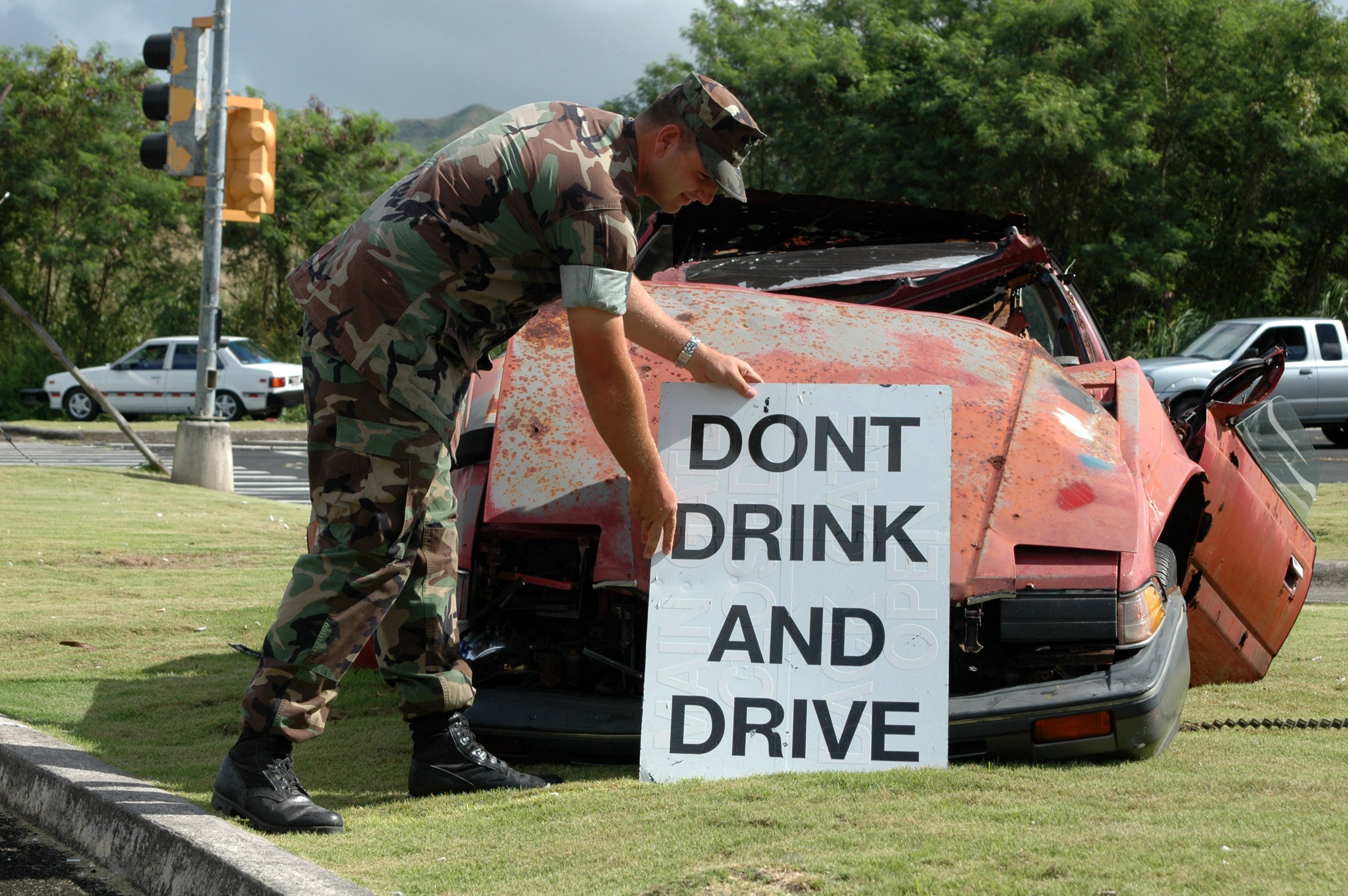 As the winter months approach, more people will find themselves driving on wet roads from the additional amount of rainfall. Unfortunately, many drivers experience rate hikes in insurance premiums as a result of minor fender-benders in the rain; however, by taking a few small steps to improve driving skills during wet roads, drivers can avoid the majority of road condition-related accidents.
As the winter months approach, more people will find themselves driving on wet roads from the additional amount of rainfall. Unfortunately, many drivers experience rate hikes in insurance premiums as a result of minor fender-benders in the rain; however, by taking a few small steps to improve driving skills during wet roads, drivers can avoid the majority of road condition-related accidents.
Tires
Ultimately, your tires are the only real thing touching the pavement, and in so doing, they are the only thing capable of coming to a stop when you apply the brakes. Every three-months or when you have an oil change, check the tread depth of your tires. If the tread has worn away to less than one-fourth inch, you need to replace the tires. The simplest means of checking the tread depth uses a penny. Turn a penny upside-down and stick it with Lincoln’s head pointing towards the inside of the tire. If you are able to see his head, your tread is too low.
Windshield Wipers
While windshield wipers may not sound like they will prevent a terrible accident, they allow you to have clarity when driving during the rain or while the road is still wet. As the blades age, they crack, chip, and wear away. If you notice unusual streaking or a lack of removal of raindrops, you need to replace your windshield wipers. Most modern vehicles possess universal windshield wiper attachments, and you can change them in less than 5-minutes.
Headlights and Taillights
Every six-months, check the clarity of your headlights, taillights, turn signals, and any other safety lights on your vehicle. Dull lights can result in other drivers being unable to see your vehicle approaching. Furthermore, you will not be able to see the road clearly, especially during heavy rain.
Slow Down
Although making sure your tires, windshield wipers, and lights work properly, you still need to be careful with your speed when the road is wet. High speeds and wet roads result in delayed reactions to potentially hazardous situations with other drivers. Take plenty of time while driving on wet roads, and you will stay safe and keep your insurance premiums in check.
Read more
 Getting into an accident is an inconvenience and there are certain states that don’t make it any easier. When you file a claim auto insurance rates have a tendency to rise. Did you know that if you file a claim for anything $2,000 and higher can cause your insurance to jump up to 40% in some places?
Getting into an accident is an inconvenience and there are certain states that don’t make it any easier. When you file a claim auto insurance rates have a tendency to rise. Did you know that if you file a claim for anything $2,000 and higher can cause your insurance to jump up to 40% in some places?
If you live in one of the places listed below, you could find yourself on the short end of the stick when it comes to rate increases.
- Massachusetts rates jump up 67% when claims are filed.
- California claims will get you a 62% increase.
- New Jersey has 59% increase.
- North Carolinians will see a 47% increase.
- Minnesota raises their rates 45%.
If you have a claim that is $2,000 or less and you can afford the repair, it would be better for your insurance rates in the long run to pay out of pocket than it would be to file the claim.
On the flip side of things, here are the states that have the lowest rate increases:
- Maryland with just a 20% increase.
- Alabama at 22%.
- Michigan & Wyoming both have a 23% increase.
- Oklahoma has a 25% increase.
If you find yourself in this situation, Scurich insurance services can help. Anyone of our friendly staff will be able to help guide you through this process.
Content provided by Transformer Marketing.
Sources: http://www.ibamag.com/news/5-states-where-you-dont-want-to-file-an-auto-claim-16616.aspx
Read more

You are thinking so many things when you are getting ready to file a claim. ‘I wish I hadn’t done that, ’or ‘I should tell them I’m sorry or any number of responses that could be running through your mind. But before you indulge in them, you need to know what not to say to the insurance company.
- Sorry. Yes it is good to have manners, and apologizing for your actions is noble, but in the case of a car accident, let the police sort out the details and assign the blame.
- Whiplash. Certain phrases have a punch behind them. This would be one of those terms. It became so widely used in fraudulent claims that anytime anyone says whiplash, adjusters generally will call the attorney.
- Intentional. Don’t go around saying that your spouse destroyed your car intentionally. Insurance is there to cover accidents and bad judgment calls, but your insurance will not cover intentional damage.
- I’m fine, really. You may want to put your friends and family members at ease, but let a doctor make that determination.
- Ride-Sharing. Ride sharing has become extremely popular nowadays. The catch? You can’t use your personal insurance if you are a driver for a ride-sharing company and get involved in an accident.
For more information or to report a claim, contact our office today.
Content provided by Transformer Marketing.
Sources: http://www.moneytalksnews.com/2014/07/23/12-words-never-to-say-to-your-insurance-company/?utm_source=newsletter&utm_campaign=email-2014-07-23&utm_medium=email
Read more
 On Saturday, August 9th a 2014 Ford Fusion was involved in a one car crash that left one person dead. 24 year old, Gwynne Coye of Aptos, a passenger in the vehicle, was killed and the driver, Marquis Edwards was arrested. Murder, Felony evading a police officer resulting in death, and other charges were filed against Marquis Edwards.
On Saturday, August 9th a 2014 Ford Fusion was involved in a one car crash that left one person dead. 24 year old, Gwynne Coye of Aptos, a passenger in the vehicle, was killed and the driver, Marquis Edwards was arrested. Murder, Felony evading a police officer resulting in death, and other charges were filed against Marquis Edwards.
If Marquis is convicted on all counts, he faces life in prison. His next court date is Aug. 22nd.
Watson Murder Law
The Watson Murder Law was enacted after the case of People v. Watson. Defendant Watson had several prior convictions for drinking and driving. In this case, his actions resulted in the death of another human being. Implied malice is the term prosecutors use in order to charge a defendant with murder. When you drink and drive, a person knows that their actions can cause the death of another human, hence implied malice. Generally, murder charges in a drinking and driving case are only imposed against a defendant who has prior convictions for DUI.
Insurance and DUI
If you have been convicted of a DUI, you could find yourself without insurance. If you find an insurance company who will provide coverage, they will need to provide you with an SR-22 so you can file with your local DMV.
Scurich Insurance Services can assist you with any questions you may have if you are in this situation.
Content provided by Transformer Marketing.
Sources: http://www.santacruzsentinel.com/santacruz/ci_26332756/driver-charged-murder-santa-cruz-crash
http://www.avvo.com/legal-guides/ugc/california-dui-murder-aka-the-watson-murder-rule
Read more
How do you decide how much coverage to purchase for your car? Do you go by the minimum requirements of your state or do you get as much as you can in case of a catastrophe?
Here’s what your average looks like for others who choose the coverage:
- 46% of drivers have bodily injury coverage is at $50,000 per person and $100,000 per accident.
- 59% of drivers have $50,000 worth of property damage liability coverage.
- 60% of the drivers have collision coverage.
- 61% of the drivers have comprehensive coverage.
- 74% of the drivers have a $500 deductible with comprehensive and collision insurance.
Are you still undecided about what’s the best coverage for you? Here are a few tips to consider:
- Did you know that doubling up on your liability insurance only costs a small fraction of what you’d pay now? A $50,000 policy doesn’t cost much more than a $25,000 one.
- Raise your deductible will get your bill lowered. The catch? You need to be able to pay the deductible before your insurance will kick in.
- Shop! Shop around for the best possible insurance for your needs.
Stop by our office today for more information on how to get the most out of your car insurance!
Content provided by Transformer Marketing.
Sources: http://www.moneytalksnews.com/2014/08/14/how-much-auto-insurance-do-you-need-dont-guess/
Read more
Your credit scores help determine what you’ll pay for an auto loan – and Auto insurance.
Studies by state regulators, universities, and independent auditors show that such credit information as how often you’ve paid a bill more than 60 days late can predict your probability of making an Auto claim and its cost. Insurance companies use this data to help set premiums.
However, one study found that 96% of Americans don’t review their credit report once a year, even when they can do so for free. According to the Federal Trade Commission, one in four consumers had errors on their reports that could affect credit scores – and 5% of these mistakes could mean that they’re paying more than they should for Auto insurance and financing.
To make sure that your credit report is accurate, improve your score, and keep your Auto premiums down, experts recommend these guidelines:
- Order free reports from the three credit reporting agencies (Experian, TransUnion and Equifax) throughAnnualCreditReport.com , one every four months. Correct any errors immediately.
- Pay your bills on time. Payment history counts for 35% of your score.
- Keep your credit card balances below 20% of available credit.
- Monitor your credit history. Because credit bureaus look at how long you’ve had an open and active line of credit, the worst thing you can do for your credit score is to close credit card accounts. Not only do you lose your credit history for that card, but your overall utilization ratio goes up.
- Don’t open new accounts in quick succession. This represents a greater risk, especially for people who don’t have a long credit history.
Read more
 As the winter months approach, more people will find themselves driving on wet roads from the additional amount of rainfall. Unfortunately, many drivers experience rate hikes in insurance premiums as a result of minor fender-benders in the rain; however, by taking a few small steps to improve driving skills during wet roads, drivers can avoid the majority of road condition-related accidents.
As the winter months approach, more people will find themselves driving on wet roads from the additional amount of rainfall. Unfortunately, many drivers experience rate hikes in insurance premiums as a result of minor fender-benders in the rain; however, by taking a few small steps to improve driving skills during wet roads, drivers can avoid the majority of road condition-related accidents.


 On Saturday, August 9th a 2014 Ford Fusion was involved in a one car crash that left one person dead. 24 year old, Gwynne Coye of Aptos, a passenger in the vehicle, was killed and the driver, Marquis Edwards was arrested. Murder, Felony evading a police officer resulting in death, and other charges were filed against Marquis Edwards.
On Saturday, August 9th a 2014 Ford Fusion was involved in a one car crash that left one person dead. 24 year old, Gwynne Coye of Aptos, a passenger in the vehicle, was killed and the driver, Marquis Edwards was arrested. Murder, Felony evading a police officer resulting in death, and other charges were filed against Marquis Edwards.